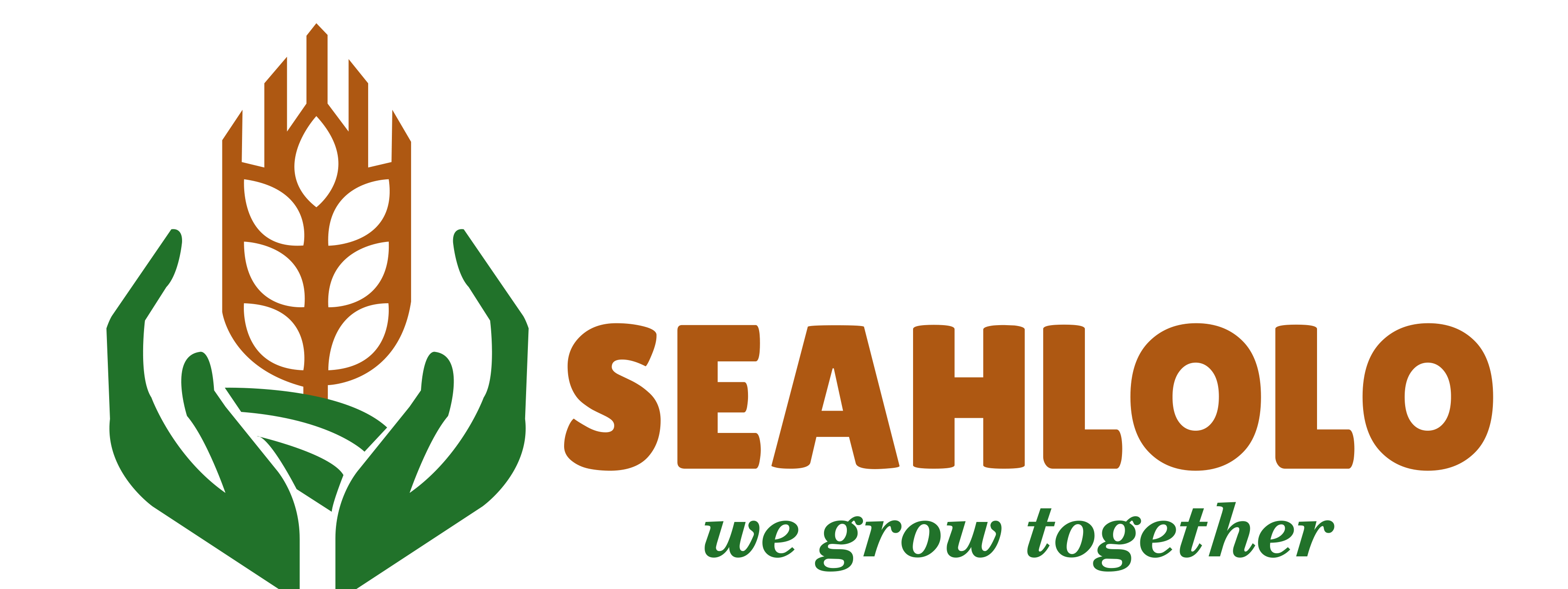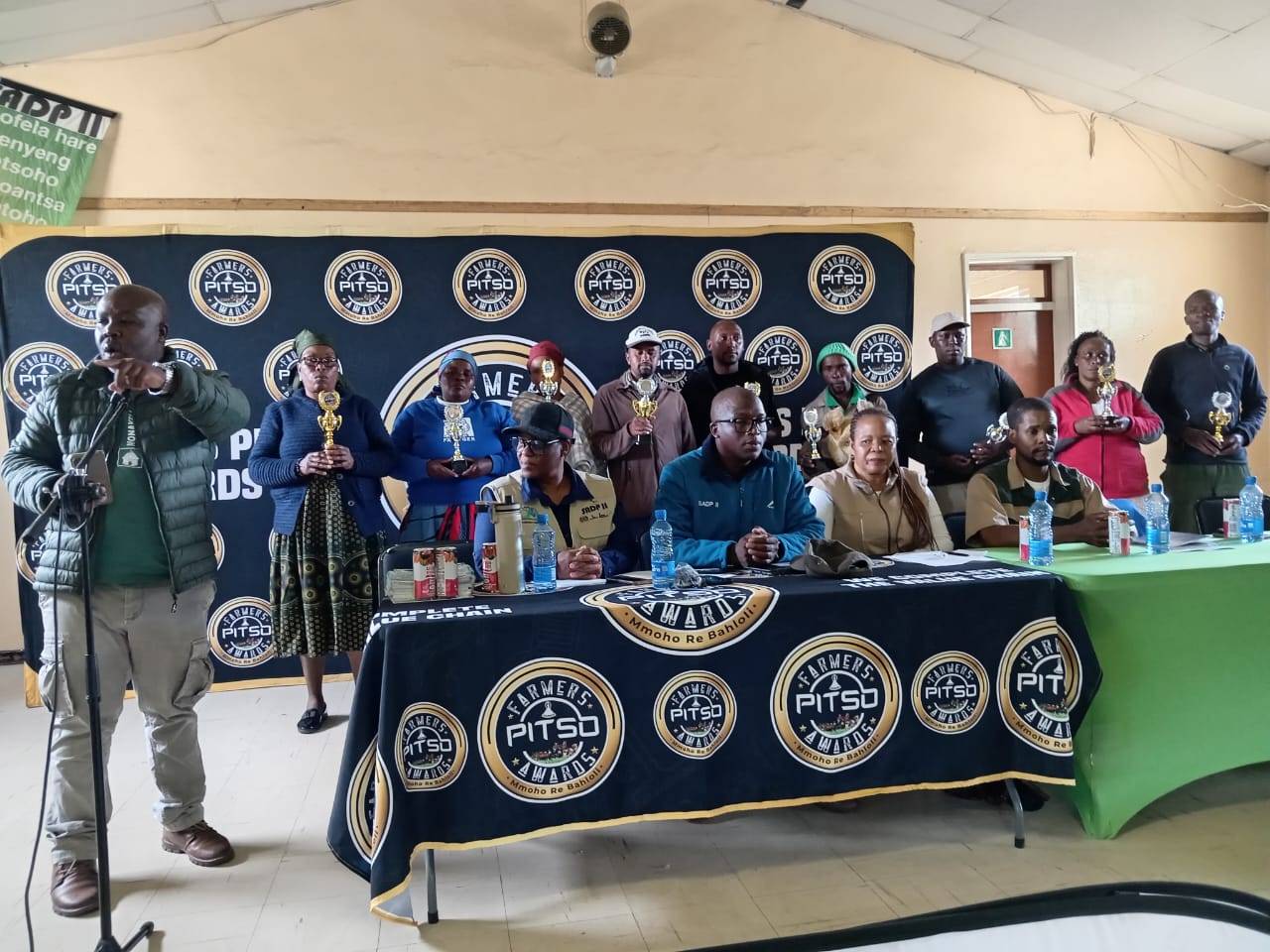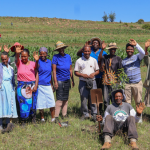![]()
Since its inception in Maseru in 2019, Farmers Pitso has grown into one of Lesotho’s most significant agricultural networking platforms, recognising farmers, their innovations, and agribusiness achievements.
On March 15, 2025, the initiative expanded further, launching its fifth district event in Qacha’s Nek—a step closer to its goal of establishing a presence in all ten districts of Lesotho.
Co-founder Thabiso Matšoele, a farmer himself, emphasised that Farmers Pitso is more than an event; “…it is a platform designed by farmers, for farmers, to equip agricultural stakeholders with essential agribusiness skills. The initiative has already been launched in Maseru, Thaba-Tseka, Mohale’s Hoek, Mafeteng, and now Qacha’s Nek, while farmers in Leribe and Butha-Buthe have also benefited from its market initiatives, despite not having an official launch.”
“Farmers Pitso connects producers, processors, retailers, and everyone involved in the agricultural value chain to exchange knowledge and form partnerships,” Matšoele explained.
Building a Stronger Agricultural Value Chain in Lesotho
Matšoele described that agriculture is a multifaceted industry with over twenty branches spanning crop production, livestock, agri-processing, technology, and forestry and to strengthen Lesotho’s agricultural value chain, Farmers Pitso seeks to encourage collaboration between primary agricultural stakeholders, reducing supply chain costs and fostering local market integration.
The importance of this approach is highlighted in a 2011 study by Jacques H. Trienekens in the International Food and Agribusiness Management Review, which states that producers must gain control over production, trade, and distribution to ensure product quality, fair pricing, and economic sustainability.
Farmers Pitso aligns with this principle by promoting localised market access, reducing the need for expensive transportation to Maseru, and equipping farmers with the knowledge to improve their productivity, trade opportunities, and resilience to climate change.
Encouraging Farmers to Explore Multiple Value Chains
During the Qacha’s Nek launch, ‘Mathabo Tsepa, chairperson of the Qacha Farmers Association, urged farmers to diversify their agribusiness efforts rather than relying on single-income streams.
“If you are a pork producer, you can venture into logistics and invest in reefer trucks. That will not only reduce your transportation costs but also generate additional income by transporting meat and fresh produce for other farmers,” said Tsepa.
Farmers Pitso serves as a platform for creative thinking, helping agricultural entrepreneurs identify new opportunities within their industries, Tsepa explained to the farmers and further encouraged them to reduce dependence on external aid and instead explore innovative ways to make their farming businesses self-sustaining.
“Let us stop thinking that farming is a one-way street and start finding ways to sustain ourselves,” she added.
By connecting young innovators with industry experts, policymakers with agricultural beneficiaries, and farmers with cutting-edge technologies, Matšoele said the initiative fosters growth, knowledge-sharing, and networking among stakeholders.
Overcoming Challenges in Lesotho’s Agricultural Sector
Agricultural value chains in developing countries often face several structural obstacles, as noted by Trienekens’ study and these include; limited access to infrastructure and institutional support, scarce financial resources for small-scale producers, reliance on traditional farming methods, minimal integration with regional and international markets.
Lesotho faces similar challenges and according to the World Food Programme (WFP) Annual Country Report 2023, released in April 2024, 49.7% of Lesotho’s population lives below the food poverty line.
The report further noted that small-scale farmers struggle with high input costs, lack of investment capital, and poor market access, which limit their ability to scale up their businesses.
“Farmers Pitso is more than just an awards program. We coordinate farmers’ markets in different districts, including the launch markets to help agricultural producers reach new customers and strengthen the value chain within Lesotho,” Matšoele emphasised.
Recognising and Rewarding Agricultural Excellence
Following each district launch, Farmers Pitso hosts an awards ceremony, acknowledging outstanding stakeholders in the agricultural sector.
Matšoele believes that recognition is a powerful motivator for farmers to work harder and innovate within their respective fields.
“The best way to motivate a person is to award them for their work well-done. This recognition encourages farmers to push for excellence, knowing their hard work will be acknowledged,” he explained.
A Vision for National Expansion and Partnerships
Matšoele pointed out that Maseru itself lacks sufficient arable land, making it essential to extend outreach programs to other districts where farming is more viable.
“Through these efforts, Farmers Pitso helps farmers understand climate change, crop resilience, and innovative agribusiness models, ensuring continued food security for both local and national markets,” he said.
Working With the Ministry of Agriculture
Farmers Pitso has become a crucial partner in strengthening Lesotho’s agricultural sector, supplementing the efforts of the Ministry of Agriculture and Food Security.
The Farmers Pitso team worked alongside the Ministry of Agriculture to ensure the success of the Qacha’s Nek launch, receiving hospitality support in the form of food and accommodation. However, Matšoele clarified that while the ministry assisted with logistics, there are currently no formal agreements between the two entities.
“We appreciate the ministry’s support during this launch, but Farmers Pitso remains an independent platform. Our mission is to collaborate with organisations and the government to further empower farmers through knowledge-sharing and market access,” he said.




